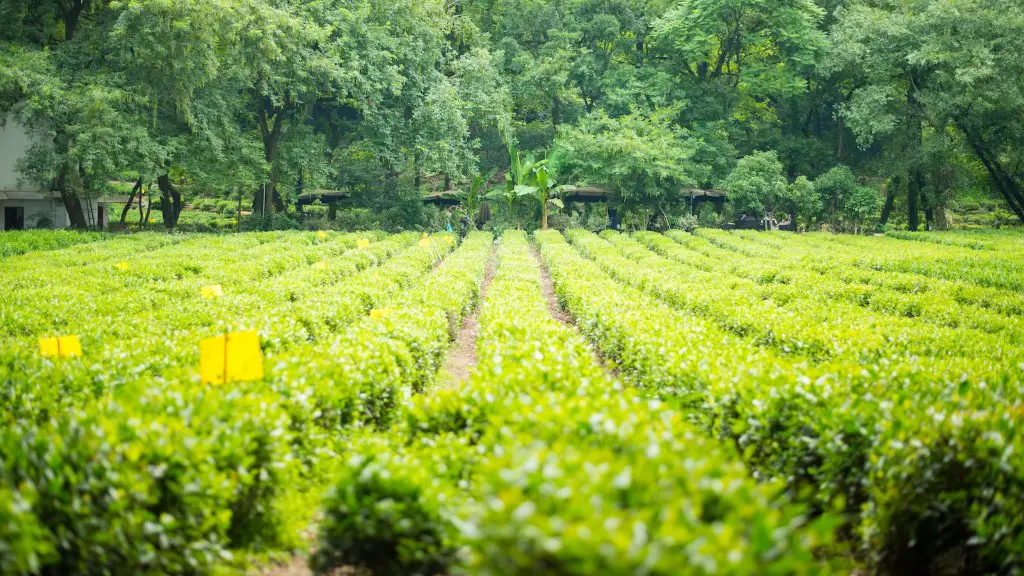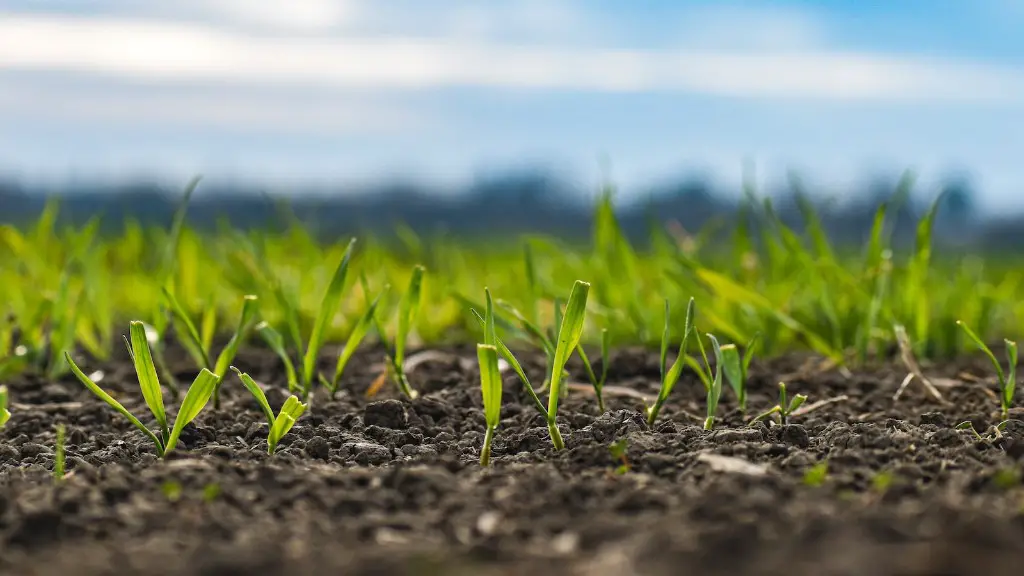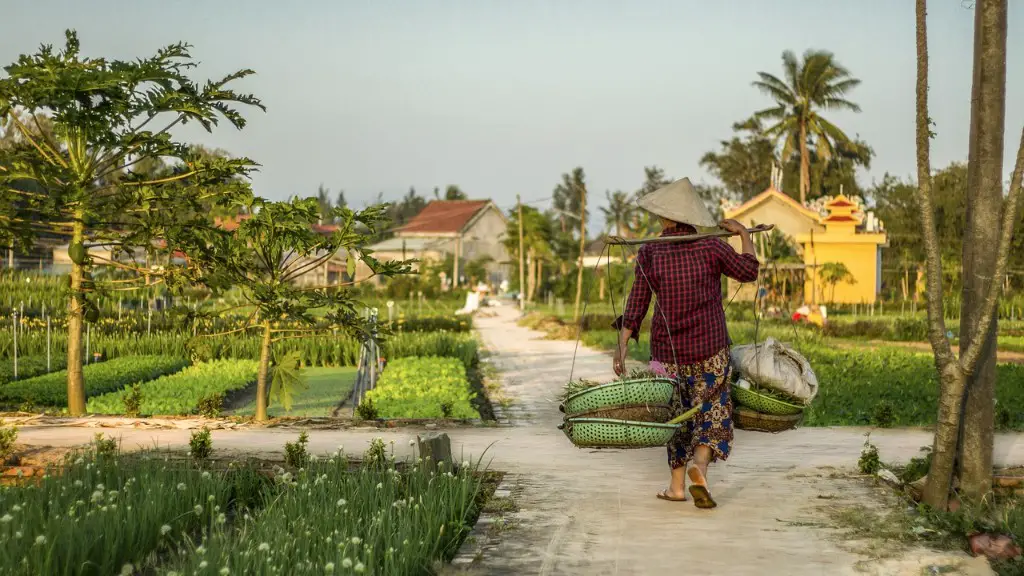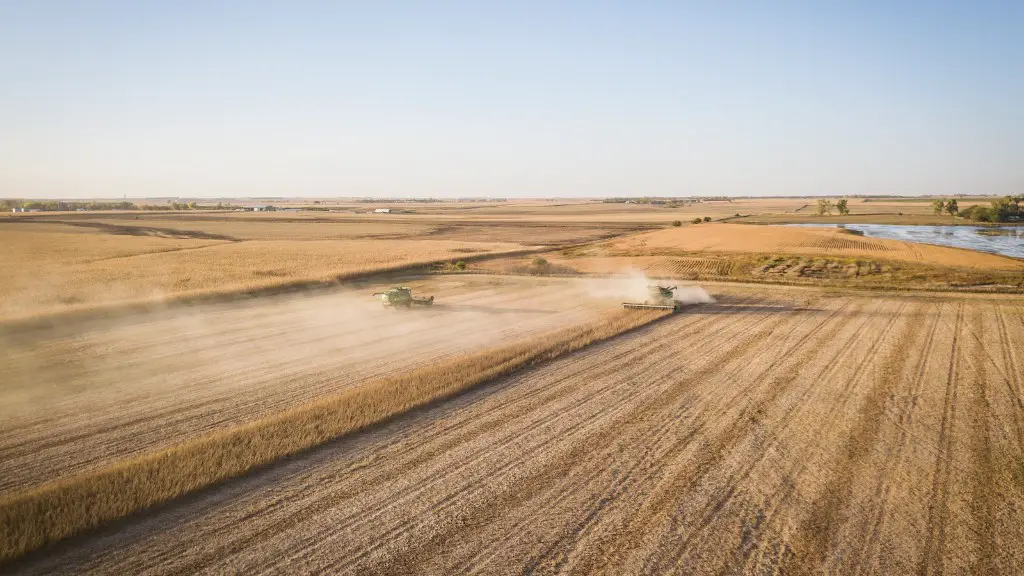Sustainable agriculture is essential for maintaining long-term food security and the health of the environment. It relies on the use of renewable resources, certain agricultural practices, and a careful balance between the two to ensure that there is enough food now and into the future. There are numerous benefits to sustainable agriculture that make it an important consideration for farmers and agricultural policy makers.
One important benefit of sustainable agriculture is that it reduces environmental impacts. By using approaches that protect natural resources, reduce pesticide use, and conserve soil, water, and energy, farmers are able to reduce their negative impacts on the environment. This helps to protect natural ecosystems, while also reducing the cost of producing food.
Another benefit of sustainable agriculture is that it is more resilient to climate change. By using more efficient farming methods and adapting to changing conditions, such as increased temperatures or changes in rainfall patterns, farmers can reduce the risk of crop failure. This increases the amount of food available and reduces waste. Sustainable agriculture also helps to reduce greenhouse gas emissions, as it uses fewer energy-intensive technologies, like machinery, while ensuring that soils remain healthy and productive.
Finally, sustainable agriculture can help to improve rural livelihoods, by providing employment opportunities in small-scale farming and agroforestry. It also provides a more secure supply of food, which can help to improve nutrition and health. By providing incentives for farmers to adopt sustainable practices, governments and other organizations can support local economies and encourage the development of sustainable agriculture.
Adopting Sustainable Agriculture Practices
Farmers are beginning to adopt sustainable agriculture practices, such as integrating crop rotations, diversifying crops, and using cover crops for pest management. Studies have shown that these practices can improve yields and reduce soil erosion, while improving soil health and the overall sustainability of agricultural systems. In addition, farmers are increasingly turning to renewable energy sources such as solar and wind, to help reduce their energy costs and their reliance on fossil fuels.
Farmers are also making use of technology to support sustainable agriculture. Emerging technologies such as GPS-based decision tools, automated irrigation systems, and soil sensors can help farmers monitor and manage their farms in a more efficient manner, while also reducing their environmental impacts. These technologies can also provide farmers with more accurate data on weather patterns, crop yields, and soil conditions, allowing them to better plan for the future.
Sustainable agriculture is also becoming more popular with consumers, as people become more aware of the environmental and health benefits of organic and locally produced foods. The market for sustainable and organic foods is growing, and farmers are looking for ways to differentiate their products from conventional ones. This has led to an increase in demand for certifications and labels that can help consumers identify products that have been produced sustainably.
Finally, government and non-governmental organizations are playing an important role in promoting and encouraging sustainable agriculture. Governments are providing incentives, such as tax breaks and grants, to encourage farmers to adopt sustainable practices, while also increasing access to training, information, and educational materials for farmers.
Financing Sustainable Agriculture
In addition to incentives, governments and other organizations are providing financial assistance to help farmers transition to sustainable agricultural practices. Governments, foundations, and research NGOs are providing grants, loans and other forms of financing to help farmers invest in equipment, new technologies, and education. This can help farmers reduce their upfront costs and better access resources to help them implement sustainable practices.
At the same time, some governments and non-governmental organizations are also providing farmers with technical advice and support on how to transition to sustainable agricultural practices. For example, many organizations are developing sustainable agriculture plans and packages which include training, advice, and resources to help farmers make the switch. They are also providing crop insurance, in case of crop failure, and other risk mitigation measures.
Finally, the private sector is an important partner in financing sustainable agriculture. Private foundations, financial institutions, and insurance companies are providing low-interest loans, investment funds, and credit lines to help farmers transition to sustainable practices. In some cases, governments are partnering with private sector organizations to provide additional support for farmers transitioning to sustainability.
Developing Policy Support For Sustainable Agriculture
In addition to providing financial and technical support, governments and other organizations are also developing policy and regulatory measures to encourage the adoption of sustainable agriculture. Governments are introducing regulations that provide incentives for farmers to adopt sustainable practices, such as carbon taxes, use of cover crops, and renewable energy sources. They are also introducing stricter regulations on the use of chemicals and pesticides, in order to reduce their environmental impacts.
In addition, governments and international organizations are developing standards to help farmers identify and implement sustainable agricultural practices. The Sustainable Agriculture Network (SAN), for example, is an international network of non-governmental organizations that works to promote sustainable agriculture through the development of standards and certifications. These standards provide guidance to farmers on what practices to adopt, as well as guidelines for assessing the sustainability of products.
Finally, governments and non-governmental organizations are working to increase public awareness of the importance of sustainable agriculture. By providing information on the benefits of sustainable agriculture and encouraging consumers to buy sustainably-produced products, they are helping to create a market for sustainable agriculture and raising awareness of the need for sustainable agricultural practices.
Measuring The Impact Of Sustainable Agriculture
In order to effectively measure the impact of sustainable agriculture, it is important to measure its environmental, social, and economic impacts. Governments, NGOs, and research organizations are developing indicators to measure the environmental impacts of agricultural systems, such as air and water quality, soil health, and biodiversity. They are also measuring the effects of sustainable farming practices on the livelihoods of farmers, such as job creation, income generation, and food security.
In addition, researchers are developing economic models to measure the economic impacts of sustainable agriculture. For example, they are assessing the economic benefits of reduced input costs and increased yields, as well as the impacts of government incentives, such as subsidies and grants. These models can also help to measure the impacts of specific farming practices, such as crop rotation, on farm incomes and the overall economic performance of the sector.
Finally, researchers are also assessing the societal impacts of sustainable agriculture. They are assessing the effects of sustainable practices on communities, such as increased income and job opportunities, as well as the effects of increased access to fresh, healthy foods. These assessments are helping to inform policy makers about the potential impacts of sustainable agriculture on local communities and economies.
Government Support & Incentives For Sustainable Agriculture
In order to ensure the successful adoption of sustainable agricultural practices, governments and other organizations must provide the appropriate incentives and support. Governments can provide financial incentives, such as grants, subsidies, and tax breaks to farmers adopting sustainable practices. They can also provide access to technical advice and training to help farmers understand and implement sustainable practices.
In addition, governments can create more favorable market conditions for sustainable agriculture. This can include setting up special markets for sustainable products, introducing labeling schemes that indicate the sustainability of products, and offering public procurement contracts that specify sustainable production standards.
At the same time, governments can introduce regulations that reduce the use of pesticides, fertilizers, and other inputs, or that restrict certain agricultural practices, such as monocropping. They can also develop policies to support organic production, increase access to land for small-scale farmers, and promote agroforestry and other sustainable land-use practices.
Finally, governments can introduce policies and legislation to support access to land, credit, seeds, and technology for small-scale farmers, as well as policies that promote and encourage local food production and consumption. These initiatives can help to increase access to nutritious, locally-produced food, while also creating economic opportunities in rural areas.





